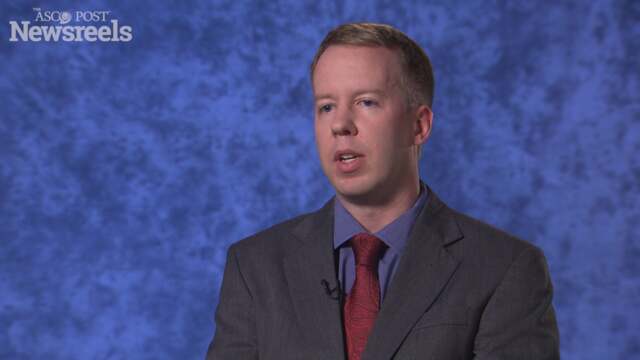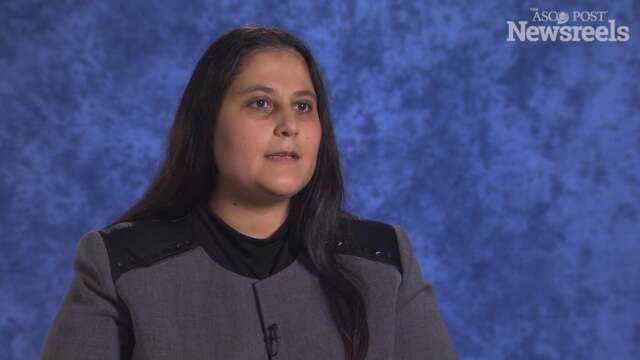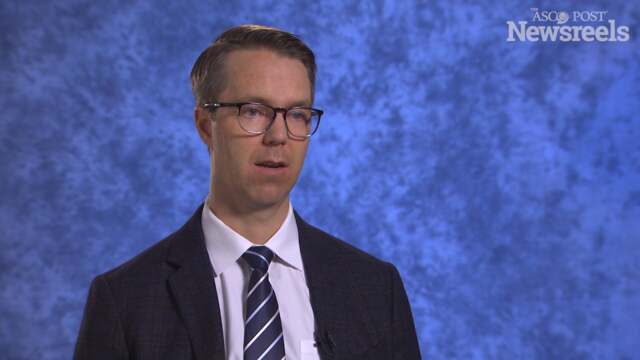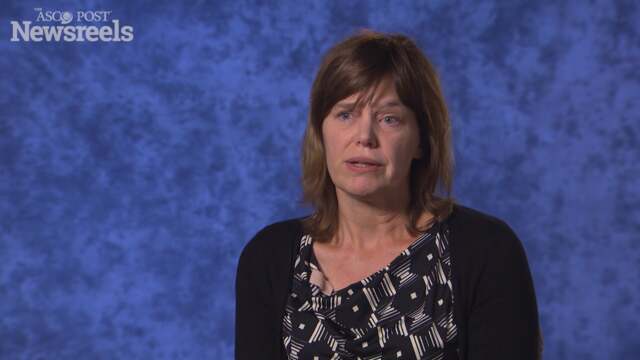Jamie Jacobs, PhD, on Early Integrated Palliative Care: The Positive Effects
2017 Palliative Care in Oncology Symposium
Jamie Jacobs, PhD, of Massachusetts General Hospital Cancer Center, discusses study results that showed integrating oncology and palliative care early in the course of treatment helps people with incurable lung and gastrointestinal cancers cope better and have an improved quality of life and less depression (Abstract 92).
Jacob J. Strand, MD, of the Mayo Clinic, discusses tips and tools that clinicians can use to develop universal precautions for prescribing opioids in oncology and palliative care practice.
Michael Hoerger, PhD, of Tulane University, discusses the effect on quality of life, depression, and end-of-life care when physicians focus on coping or on decision-making and advance care planning (Abstract 154).
Areej El-Jawahri, MD, of Massachusetts General Hospital, discusses a video tool that helps overcome communication barriers so that patients can make more informed decisions for end-of-life care and their preferences are respected.
Eric Roeland, MD, of the University of California, San Diego, summarizes key papers delivered at the Palliative Care Symposium on managing insomnia, fatigue, nausea, and the ways in which physical therapy and nausea can reduce the side effect burden.
Jenske Geerling, NP, of the University Medical Center Groningen, discusses findings from a multicenter trial on patient education, pain reduction, and quality of life (Abstract 203).





